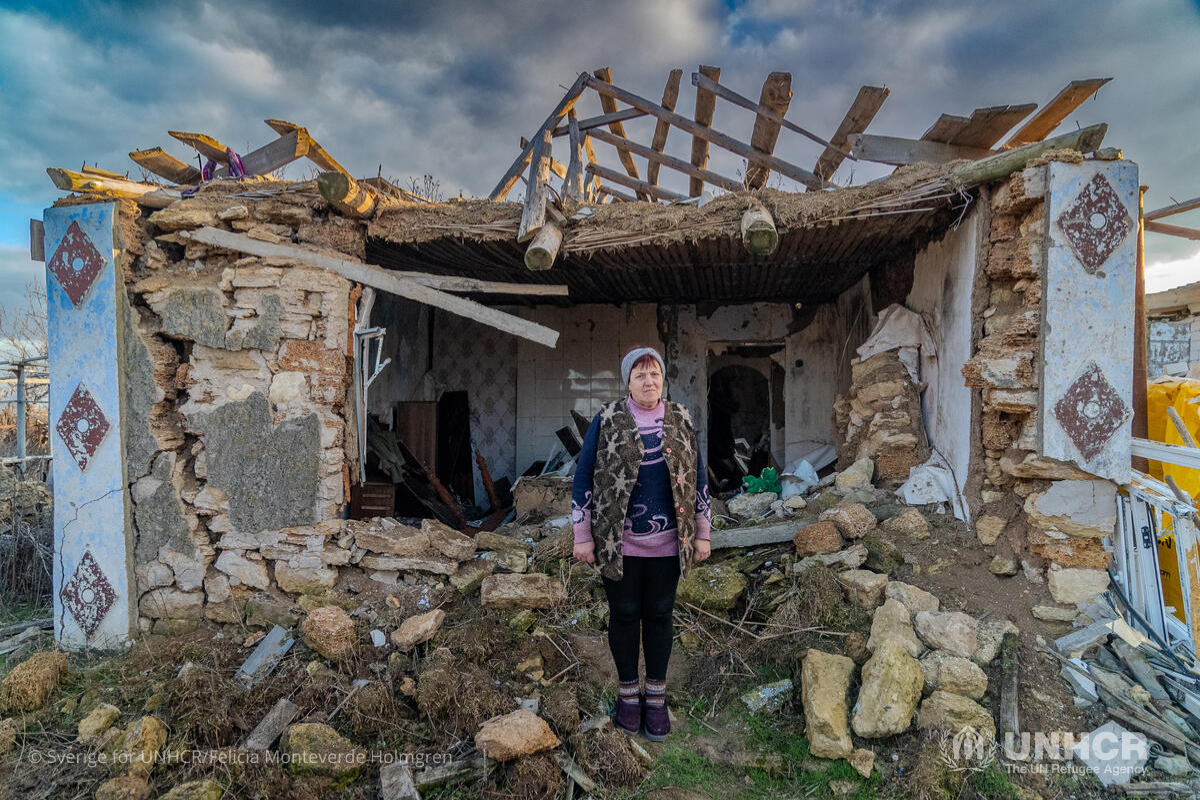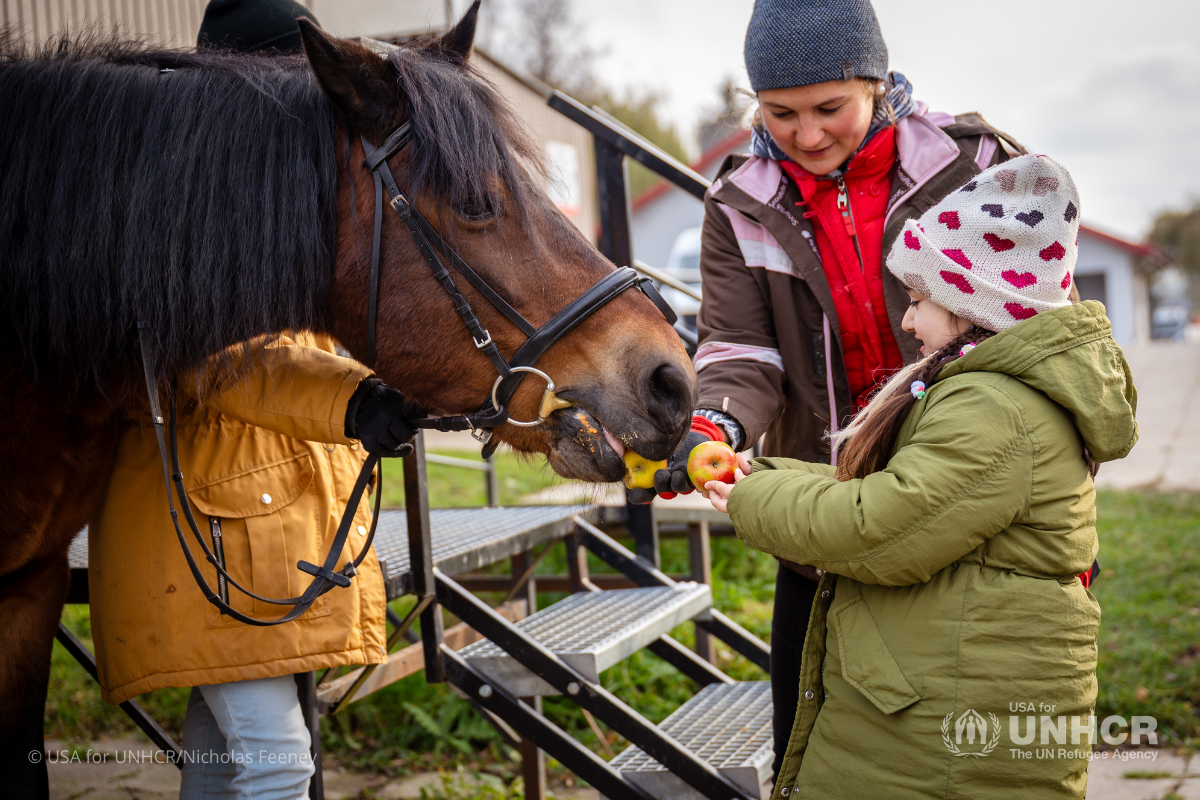Announcing the 2023 Sparking Change Grantees
When resettled refugees join their new communities, they have many challenges to overcome. New cultures, new languages and new customs can all be difficult to navigate, along with the struggles of supporting family and rebuilding livelihoods. As challenging as these circumstances can be, they also best equip resettled refugees to take a leadership role in welcoming new Americans and building bridges between refugees and their new communities.
To support the creative, community-building solutions developed and delivered by refugees in the United States, USA for UNHCR, Welcoming America and Refugee Congress created the Sparking Change grant. The grant is offered to forcibly displaced individuals who now live in Louisiana, Oklahoma or Texas and have innovative ideas about how to promote welcoming, inclusion and collaboration in their communities.
Meet the 2023 Sparking Change grantees and learn more about how their projects will improve integration and inclusion for displaced people in their communities.
Salemu Derick Alimasi is a resettled refugee from the Democratic Republic of the Congo who now lives in Katy, Texas. His project will be executing an Arts Festival for isolated youth in his community. He hopes to feature the work of youth from all backgrounds, including resettled refugees and migrants. In addition to the festival to showcase work from local youth, his project will also offer workshops, supplies and opportunities for youth to view performances from other artists.
Masouda Basharat was forced to flee her home in Afghanistan at a young age, and now lives in Tulsa, Oklahoma. Her experience inspires her to work to empower other refugee women, especially in overcoming the challenges of resettlement. Using the Sparking Change grant, she will offer a workshop for Afghan women in Tulsa and help them bridge cultural gaps, promote financial literacy, enhance digital literacy and other skills that will help them acclimate to their new homes.
Bahati Kanyamanza is a former refugee from the Democratic Republic of the Congo who now lives in Texas. He has more than two decades of experience working with refugees and hopes to use the Sparking Change grant to empower youth in his community. Working with adolescents ages 8-17, he will offer sessions that help them adjust to life in the United States and build confidence. This includes workshops on communication and leadership, interpersonal and character development, health-related behaviors and more.
Aisha Koroma is a resettled refugee from Sierra Leone who arrived in the United States when she was 14 years old. She currently lives in Houston, Texas and works in mental health services, and she wants to continue to expand her work using the Sparking Change grant. Her project, The Safe Space Project, is an initiative to reduce stigma and address inequality by fostering holistic well-being and mental health awareness. The project will offer safe spaces where community members can gather to discuss their mental well-being, receive training in Psychological First Aid and Stress Management and come together for community dinners that help break down cultural barriers.
Sara Louis-Ayo is a resettled refugee from Sudan who now resides in Baton Rouge, Louisiana. Sara hopes to foster connection in her community, especially among refugee women, through food. In her project’s sessions, refugee women will participate in discussions about their experiences while also leading workshops and cooking classes to share their cultures. The project seeks to build connections between displaced women in their similarities, while also allowing them to celebrate the differences in their cultures.
Niyonsaba Magnifique was born and raised in a refugee camp in Tanzania, but her family is originally from Burundi. Her project is inspired by her mother, who worked as a marriage counselor before resettlement but was unable to continue her work once in the United States. Her project is to host the Kerebuka Women Conference, a one-day event featuring panels, discussions and presentations that will empower refugee women to rebuild their livelihoods in the United States. Whether through entrepreneurship workshops or education guidance, Niyonsaba hopes that the conference will help women take the next step in their resettlement journeys.
King Patrick Saah resettled in Baton Rouge, Louisiana from Liberia more than 20 years ago. With the support of the Sparking Change grant, he hopes to host the first ever Baton Rouge Red Stick Unification Cup. Through sports and play, he hopes participants in the tournament will build connections and break down barriers. The project also seeks to promote active lifestyles for community members and offer workshops on health and fitness.
Sateza Safi is a recently resettled refugee from Afghanistan and a current student at the University of Tulsa. In her project, she hopes to build a community network for Afghan students that will foster inclusion and belonging, while also promoting cross-cultural understanding for other students and faculty at her university. Using the Sparking Change grant, she will help Afghan students access resources and mentorship, and she will host welcome activities for new Afghan students throughout the year. She will also host cultural celebrations of Afghan festivals that will promote cultural exchange with other members of the community.
Dauda Sesay is a resettled refugee from Sierra Leone who now resides in Baton Rouge, Louisiana. Using the Sparking Change grant, he hopes to empower children of African refugees and asylum seekers and support them in their educational journeys. He will organize ACT/SAT/GRE tutorials for students who are pursuing higher education, as well as opportunities for them to pursue other professional certifications or entrepreneurial opportunities. This project will also offer sessions for schools and parents in the community to help promote awareness.
Faridar Binti Sirazulsalam is a former Rohingya refugee who now lives in Houston, Texas. Faridar hopes to support newly resettled refugee families as they acclimate to their new lives in the United States. Using the grant, she hopes to offer English classes and citizenship exam preparation for refugee families, and particularly refugee women. She hopes that families will feel more empowered and prepared to pursue livelihood opportunities after graduating from her program.


